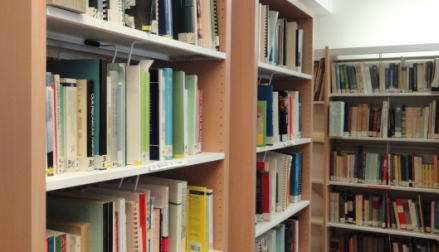| Titre : |
Animal innovation |
| Type de document : |
livre |
| Auteurs : |
Reader, S.M.(Ed.), Ɖditeur scientifique ; Laland, K.N.(Ed.), Ɖditeur scientifique |
| Mention d'Ć©dition : |
01 Ć©d. |
| Editeur : |
New York : Oxford University Press, NY |
| AnnƩe de publication : |
2003 |
| Importance : |
344 p. |
| ISBN/ISSN/EAN : |
978-0-19-852622-3 |
| Note gƩnƩrale : |
Based on papers from a symposium on Animal Innovation held at the International Ethological Congress in Tuebingen, Germany, August 2001 |
| Langues : |
Anglais (eng) |
| Mots-clƩs : |
Animal learning Behaviour Mental ability |
| RƩsumƩ : |
In 1953 a young female Japanese macaque called Imo began washing sweet potatoes before eating them, presumably to remove dirt and sand grains. Soon other monkeys had adopted this behaviour, and potato washing gradually spread throughout the troop. When, three years after her first invention, Imo devised a second novel foraging behaviour, that of separating wheat from sand by throwing mixed handfuls into water and scooping out the floating grains, she was almost instantly heralded around the world as a 'monkey genius'. Imo is probably the most celebrated of animal innovators. In fact, many animals will invent new behaviour patterns, adjust established behaviours to a novel context, or respond to stresses in an appropriate and novel manner. Innovation is an important component of behavioural flexibility, vital to the survival of individuals in species with generalist or opportunistic lifestyles, and potentially of critical importance to those endangered or threatened species forced to adjust to changed or impoverished environments. Innovation may also have played a central role in avian and primate brain evolution. Yet until recently animal innovation has been subject to almost complete neglect by behavioural biologists, psychologists, social learning researchers, and conservation-minded biologists. This collection of stimulating and readable articles by leading scientific authorities is the first ever book on 'animal innovation', designed to put the topic of animal innovation on the map and heighten awareness of this developing field. [RƩsumƩ Ʃditeur] |
| En ligne : |
http://www.loc.gov/catdir/toc/fy044/2004296817.html |
Animal innovation [livre] / Reader, S.M.(Ed.), Ɖditeur scientifique ; Laland, K.N.(Ed.), Ɖditeur scientifique . - 01 Ʃd. . - New York : Oxford University Press, NY, 2003 . - 344 p. ISBN : 978-0-19-852622-3 Based on papers from a symposium on Animal Innovation held at the International Ethological Congress in Tuebingen, Germany, August 2001 Langues : Anglais ( eng)
| Mots-clƩs : |
Animal learning Behaviour Mental ability |
| RƩsumƩ : |
In 1953 a young female Japanese macaque called Imo began washing sweet potatoes before eating them, presumably to remove dirt and sand grains. Soon other monkeys had adopted this behaviour, and potato washing gradually spread throughout the troop. When, three years after her first invention, Imo devised a second novel foraging behaviour, that of separating wheat from sand by throwing mixed handfuls into water and scooping out the floating grains, she was almost instantly heralded around the world as a 'monkey genius'. Imo is probably the most celebrated of animal innovators. In fact, many animals will invent new behaviour patterns, adjust established behaviours to a novel context, or respond to stresses in an appropriate and novel manner. Innovation is an important component of behavioural flexibility, vital to the survival of individuals in species with generalist or opportunistic lifestyles, and potentially of critical importance to those endangered or threatened species forced to adjust to changed or impoverished environments. Innovation may also have played a central role in avian and primate brain evolution. Yet until recently animal innovation has been subject to almost complete neglect by behavioural biologists, psychologists, social learning researchers, and conservation-minded biologists. This collection of stimulating and readable articles by leading scientific authorities is the first ever book on 'animal innovation', designed to put the topic of animal innovation on the map and heighten awareness of this developing field. [RƩsumƩ Ʃditeur] |
| En ligne : |
http://www.loc.gov/catdir/toc/fy044/2004296817.html |
|  |



